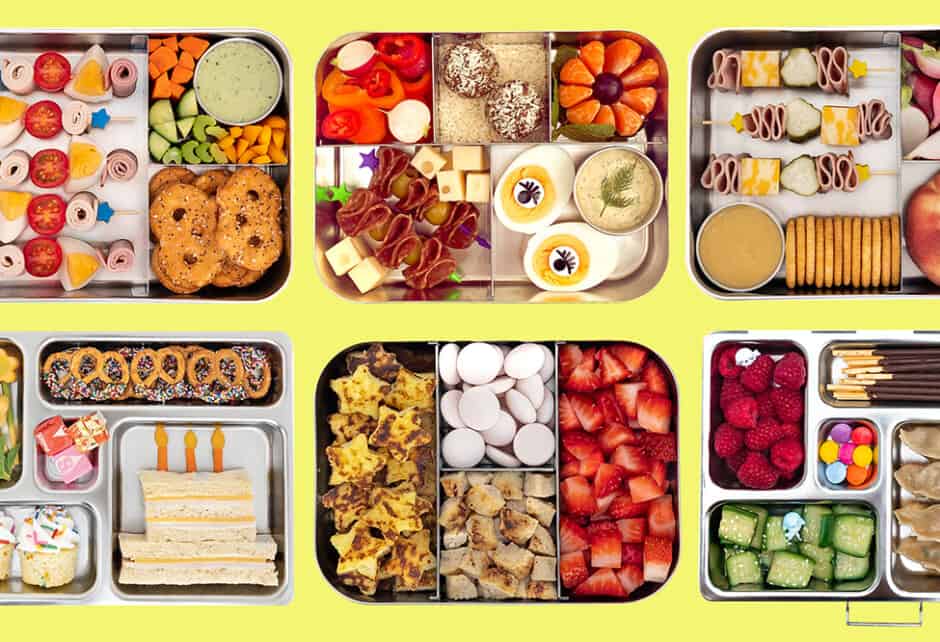
What To Eat To Feel Your Best (Mentally and Physically) Postpartum
Written by Kami Shallenberger
Photography by Lawren Howell, Photographed by Michelle Drewes
More and more, we’re starting to see how strongly the mind-body connection influences one another. In general, and especially as a new mom, our bodies literally cannot feel well if our minds are stuck in a stressed out, negative, or anxious cycle and, in turn, our minds cannot feel calm and centered if our bodies are stuck on a blood-sugar rollercoaster, in hormonal imbalance, or kept in a nutrient-deficient state that prevents proper healing before, during, and after childbirth.
With this holistic viewpoint in mind, we sat down with fellow mama and women’s hormonal health and life coach, Caroline Zwickson, M.A. for an enlightening discussion about the vital foods and nutrients that new moms recovering from pregnancy and childbirth should be getting in order to feel their best, mentally and physically. With a straightforward focus on attainable nutrition, natural hormone balancing, and lifestyle support, you’ll be well on your way to feeling more steady from the inside out so you can spend your time enjoying those early months instead of feeling completely depleted.
Okay, let’s cut to the chase. Can certain foods really make you feel better postpartum?
“Absolutely! Nutrient deficiencies are extremely common amongst women after nine months of growing and nourishing a baby into existence. These nutrient deficiencies play a huge role in how us moms feel and recover and may even play a role in reducing postpartum depression/anxiety, as well as in the onset of postpartum thyroiditis. In addition, your hormonal environment shifts rapidly after birth and then again when breastfeeding moms begin to wean their babies. Making sure that your hormones are properly supported through the right nutrition is key in making these transitions easier. In my personal practice, as well as in my group coaching program Well Mama, I often see that women don’t eat enough healthy fats, like avocado, coconut oil, grass-fed butter, olive oil, nuts and seeds, fatty fish like wild salmon or sardines, eggs, and grass-fed beef. These key foods play an extremely important role in feeling good hormonally, as enough healthy fats are essential for proper hormone production and regulation.”
What would the “ideal” day of food/snacks look like for a new mom?
“Every woman is a bit different, but generally I recommend sticking to a blood-sugar balancing way of eating, which means you would eat breakfast within 30-60 minutes of waking up, a mid-morning snack, lunch, a mid-afternoon snack, and dinner. Basically eat when your baby eats! Each snack or meal should, roughly, contain the following ratio of healthy fats, protein and fiber: 30% healthy fat—such as avocados, coconut butter or oil, almond butter, grass-fed butter, nuts or seed, and wild fish; 25% protein—such as organic chicken, grass-fed beef, wild fish, beans, nuts or nut butters; and 45% fiber—such as dark leafy greens, veggies, and low glycemic fruits. There is obviously some overlap and many foods contain more than one of those categories. Be playful with your snacks and meals and, no matter what, make them delicious. Keeping yourself hydrated is just as important as what you eat, so make sure you drink enough water, especially if you are breastfeeding. Shoot for a 10 oz. glass of water every time you breastfeed or bottle feed your baby and as needed in between.”
Can certain foods or nutrients help with postpartum depression or anxiety, as well?
“Definitely. Common nutrient deficiencies that present a greater risk for new moms to develop postpartum depression or anxiety include deficiencies in folate, vitamin B12, calcium, iron, selenium, zinc, and omega-3. By making sure that you eat a variety of and enough foods that contain these nutrients and, possibly, even getting blood tests done that check your nutrient status is a great start. If necessary, you can also supplement these nutrients, but always talk to a skilled professional before beginning a supplement plan and be sure only to take high quality supplements. It is estimated that approximately 10% to 15% of new moms experience postpartum depression, which can begin at any time during the first year postpartum. There is another less known condition that is sometimes referred to as delayed postpartum depression, which occurs in mothers when they wean their babies from breastfeeding. Either way, if you are a few weeks into motherhood or are more than one year postpartum and are experiencing symptoms that sound like you could have PPD or PPA, make sure you get the right support.”
How will you know if these foods and/or nutritional supplements are working?
“You should begin to feel better within a few weeks. Making changes through nutrition and lifestyle choices is not like taking an antibiotic, so you won’t see overnight changes. You will find that over time—usually 3-6 weeks, some sooner, some later—that various elements about your health and well-being shift, such as your energy increasing, your digestion improving, feeling less stressed, headaches disappearing, feeling more positive, etc. Every woman is different, so you’ll want to look for an improvement in the areas in which you were feeling the most unwell.”
What should a mother do if she’s still feeling off?
“My best advice is always to have a network of support around you and qualified people from different orientations that speak to you. If you feel something is ‘off’ and can identify with a lot of the PPD and PPA symptoms, you want to be sure to see a doctor as soon as possible to get the right support so that you can focus on bonding with your baby. This support may mean taking medication for a period of time and it may not, but there is no harm in covering your bases and asking for the support you need. Even if you are on medication, it’s a great idea to continue to support your body and mind through the right nutrition and life support so that you can handle the stressors and challenges that come with any transition, particularly the transition into motherhood, as best as you can without completely losing yourself.”
In the early days and weeks after delivery, feeding yourself can easily become just another “to-do” on your list. What are some steps that a new mom can take to easily nourish herself in the early days and weeks?
“Two words: support and prepare. When you have a little one to take care of, especially when it’s your first, you want to be sure to prepare as much healthy, nourishing food as possible in advance as well as get the support you need from family and friends. I always say to my mamas that being a mom doesn’t have to be a one-woman job. In the first few weeks after giving birth you want to have plenty of foods that support your hormones well, which means sticking to a blood-sugar balancing way of eating that includes plenty of those healthy fats I mentioned earlier. It is also best to stick to foods that are cooked and easy to digest, so your body can focus on healing and absorbing nutrients easily.”
Can you share some of your favorite wellness resources for new moms?
“I am obsessed with Aviva Romm, MD for all things women’s health related. She has a phenomenal podcast that I listen to when I exercise. I also created a free Happy Healthy Mama Guide, which walks you through five of my favorite steps to taking really delicious care of yourself—body and mind.”
Want more postpartum survival tips? Take a look at our piece on making the Postpartum Transition, our list of 20+ Ways To Help A New Mother, as well An Argument For Staying Homebound The First 40 Day Postpartum.
Share this story




